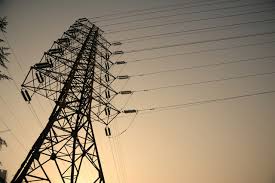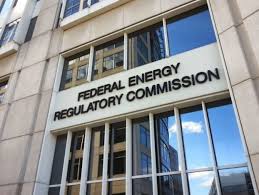A petition in front of federal regulators to effectively overturn net metering policies nationwide faced overwhelming bipartisan opposition on Monday from state regulators, members of Congress, public power groups and others.
Though several utilities filed to intervene on the petition, including Pacific Gas and Electric, Xcel Energy and Duke Energy, none filed comments by the June 15 deadline, so it remains unclear where utilities fall on the issue. Investor-owned utility group Edison Electric Institute (EEI) has said it finds net metering to be a “regressive and poor public policy tool,” but the group ultimately decided against filing comments during this initial period according to Utility Dive.
Opponents of the petition decried the move as an affront to states’ rights and legally questionable on a number of grounds. Others were also critical of the group that introduced the petition and urged the Federal Energy Regulatory Commission to require it to disclose its backers.
It did not appear any Oklahoma officials filed anything regarding the petition.
State regulators, the renewable energy industry, environmentalists, members of Congress and others have been openly opposed to the New England Ratepayers Association (NERA) petition from the start, but observers have been less sure of where utility interests would fall, particularly after EEI declined to file comment.
“The wild card here will be the number of utilities that have already declared their intent to file something here, and I don’t know which side of this they’re going to come down on,” Ari Peskoe, director of the Electricity Law Initiative at the Harvard Law School, told reporters last week.
But by the end of Monday night’s filing deadline, utilities had not taken a stand on the issue and supporters for the petition remained sparse. The list of those opposed to the petition included 20 Democratic Senators and two members of the House.

The American Public Power Association and National Rural Electric Cooperative Association filed comments in opposition. Some Electric Power Supply Association members, including Calpine Corporation, commented but did not take a position on the proceeding. The members asked FERC to “re-examine its authority to regulate netting intervals under the Federal Power Act … and apply a consistent determination on that issue” in that case and another complaint that focuses on the right of generators in PJM to self-supply.
NERA’s petition, filed in April, calls for FERC to consider all behind-the-meter generation a wholesale sale, giving federal regulators exclusive jurisdiction. It largely targets the policy of net metering, which compensates rooftop solar owners for the power sent back to the grid. 45 states have some sort of similar distributed energy compensation mechanism in place.
“[N]et metering is having an unfair and harmful impact on ratepayers, especially low-and middle-income families. Given this problem, NERA has chosen to challenge net metering at the body which has the proper jurisdiction over wholesale electricity transactions,” the group said in an emailed FAQ.
Some of those filing included American Electric Power, parent company of PSO in Oklahoma, NextEra Energy, the New Mexico Public Regulatory Commission, Iowa Gov. Kim Reynolds, the Arkansas Electric Cooperative corporation, the Iowa Energy Council and the Public Utility Commission of Texas.
Groups that supported NERA Monday included libertarian group Heartland Institute, which has been criticized for fueling climate change denial and taking money from companies such as ExxonMobil and coal company Murray Energy. Heartland Institute mainly criticizes the policy for shifting costs from higher-income to lower-income customers.
“The United States already has plenty of other welfare programs for the upper-middle class. It does not need this one,” the group wrote.
Other supporting groups include the Competitive Enterprise Industry, Americans for Tax Reform and Citizens Against Government Waste.
But opponents criticize the NERA position for a number of legal and practical reasons. State regulators, governors, attorneys general, state legislators, think-tanks and advocacy groups ranging from conservative to libertarian to liberal and U.S. Representatives and Senators all joined growing opposition to the petition.
“The Commission … has for nearly 20 years acknowledged states’ authority and held that net metering does not involve wholesale sales subject to its jurisdiction,” the National Association of Regulatory Utilities Commissioners wrote in its comments, echoing previous public criticisms from state commission chairs in Georgia, Arkansas and elsewhere. “Relying on that settled law, states and utilities have developed and implemented net metering programs, and millions of Americans have made long-term investments in solar panels and other distributed generation for their homes and businesses.”
Others were critical of NERA itself and urged FERC to force the group to disclose its funders. NERA describes itself as “a non-profit organization focused on promoting sound public policy that protects utility customers, both families and businesses, and lowers the cost of regulated services” in New England.
But observers say NERA is structured as a different type of organization.
“NERA is falsely characterizing itself to distort the official record and conceal the motives of those financing this very expensive effort,” consumer rights advocacy group Public Citizen wrote in its comments. NERA totals 15 members, 10 of which pay $20,000 in annual dues, and five pay $5,000 per year, according to Internal Revenue Service documents obtained by Public Citizen.
“Low-income families cannot afford to make $5,000 or $20,000 annual contributions to ratepayer associations,” the group wrote. “Rather, NERA appears to be structured as a trade association, not a ratepayer protection group.” NERA President Marc Brown has not responded to multiple requests for comment on funding.
Public Citizen and others urged FERC to dismiss the filing altogether.







